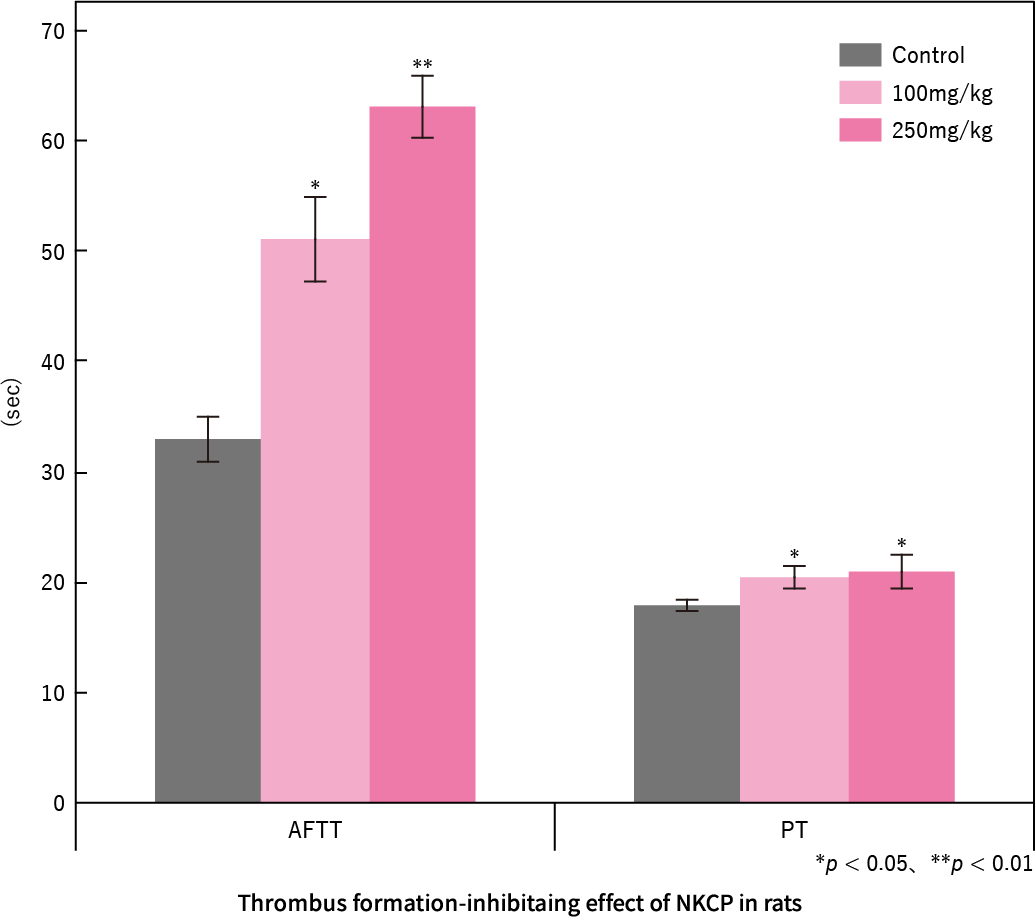Anticoagulant effect of NKCP in rat model of thrombosis formation
Research and Development Department, Daiwa Pharmaceutical Co., Ltd., 2001
The anticoagulant effect of NKCP was studied in a rat model of thrombus formation. In this model, platelet aggregation was induced by injuring endothelial cells of the abdominal descending aorta to form thrombi. NKCP was administered into the duodenum 2 hours after producing the thrombus formation model using in situ loop method. Blood was collected from the abdominal aorta 6 hours after administration to determine activated partial thromboplastin time (APTT) and prothrombin time (PT) as indicators of endogenous and exogenous coagulations, respectively. APTT was 33.5 ± 2.4 seconds for the control group (administered physiological saline), 52.0 ± 4.5 seconds for the NKCP 100mg/kg group, and 63.3 ± 2.9 seconds for the NKCP 250mg/kg group. A significant coagulation delay was observed in the NKCP treatment groups compared to control group. PT was 16.7 ± 0.5 seconds for the control group, 20.6 ± 0.9 seconds for the NKCP 100mg/kg group, and 21.3 ± 1.7 seconds for the NKCP 250mg/kg group. As with the APTT, a significant coagulation delay was observed in the NKCP group as compared to control. These results suggest NKCP inhibits thrombus formation.
